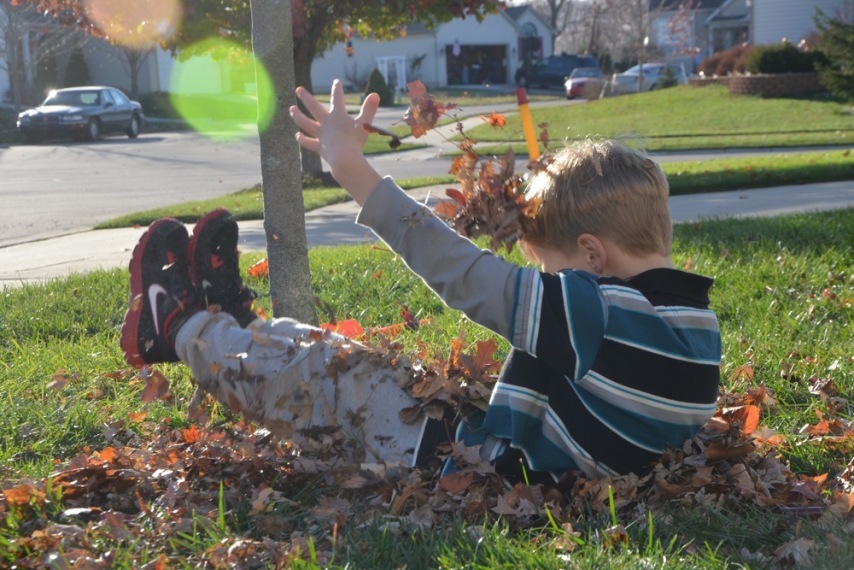Flexible schooling
We have gone through a transition over here. As far as homeschooling goes I have forever held unschoolers in a very high regard and from the start that kind of learning environment has always been my goal. Lately, however, I have found myself leaning harder and harder on guides—not curriculum per se, but learning guides—and I have been grappling with the increasing distance between where we are and where I want to be. I had this image of getting up in the mornings and following our learning desires from dawn until dusk, but lately we've both fallen enjoyably into following first Math-U-See, then the units in Building Foundations of Scientific Understanding, and now the progression in The Story of the World. One subject at a time I have been giving in, or giving up, as I tell myself.
Then, a few weeks ago Calvin asked if he could stop writing in his journal and start doing some other kind of writing practice. I went in search of an answer to this request and came across The Well Trained Mind, by Susan Wise Bauer and Jessie Wise. This is a method of education that is based on the classic trivium of learning stages: first grammar, then logic, then rhetoric. Now, in some part this seems like exactly what I wanted to avoid—the concept of rote memorization by repetition in the early grades seems like it was made to kill an interest in learning. But I decided to give some of it a try, and Calvin is eating it up. He loves the spelling workbooks, the poem recitation and memorization, and the grammar exploration.
So now I can no longer honestly say we are unschoolers.
This leaves me torn. If you consider that we started out unschooling (following Calvin's interests and encouraging learning in every situation) and only recently began to give over to outside influence in methods, Calvin is a wonderful example of unschooling success. He asks questions and pursues the answers, with or without adult help. He is eager to master skills and usually willing to try and try again in order to do so. When he has struggled beyond normal with a concept I have always set it aside and not much later he returns to it, usually on his own, only to grasp it with ease. He is a happy, eager, and able learner all on his own. So why am I looking to curricula at this point? I'm not sure. Maybe it's because in many cases I feel that following a natural progression of information can be helpful, and having a guide to that natural progression in front of me is a comfortable crutch. Or maybe it's because I think there actually may be something to the concept of the trivium.
Unfortunately, saying that we are following a classical education doesn't feel quite right, either.
We've been loosely trying the concepts in The Well Trained Mind for a couple of weeks now, and like I said Calvin is eating it up. But even though I know we'll have to give up the title of "unschoolers", I'm also not ready to say that we are plainly following the classical education arc. In health they say "everything in moderation" and I think methods and curricula should come with the same warning. I'm still trying to fit the process uniquely to Calvin's needs and desires, not just following the recipe to the letter. Math-U-See is where I come closest, but we use games and books to supplement the worksheets, and even as replacement for worksheets that are over-repetitive. We are doing the units in BFSU, but when there is extra interest we spend extra time and delve more deeply and do more research. The same is especially true for The Story of the World. Calvin has a great love for history. The place where I am having to be the most inventive is in the actual grammar portion of the classical education. Via unschooling, learning naturally by using and doing, Calvin has become quite proficient in this subject for his age, and yet there are some things, some skills, that have been missed. So we are wending our way through the grammar, spelling, and writing books recommended for his age, but they are actually rather easy for him, and I find myself supplementing, altering, and sometimes completely cutting out recommended lessons.
Perhaps I can refer to us from now on as flexible schoolers.
I am still thinking about this whole thing. I'm doing a lot of hard thinking, and it's been a real struggle. I feel more comfortable with the classical method and I think I do better with it, and that's saying something. But of course the real measure is Calvin. I don't ever want him to lose the love of learning, or especially his curiousity or independence. I will never stop him from following the thread of his own desire simply because it wasn't on the week's docket. Even while we are classically memorizing multiplication tables, the parts of speech, biological terms, and historical dates while in the grammar stage, we are also still building with Legos, reading whatever is in front of us, playing with art, experimenting with life, staring out the window at the birds visiting our feeder, etc., etc. And I'm still thinking about this whole thing, but we are having a great time, and that's good enough for me right now.
 curriculum,
curriculum,  homeschooling,
homeschooling,  methods
methods 



